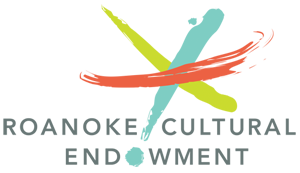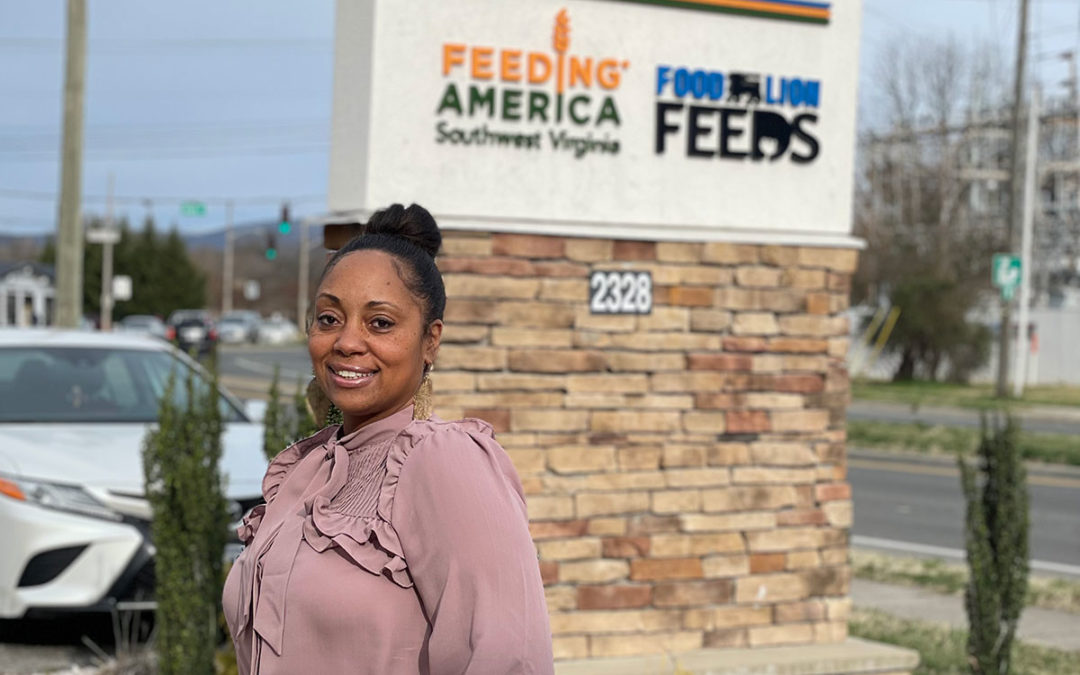Cheryl Mosley, Director of Feeding America Southwest Virginia Community Solutions Center has served on the Board of the Roanoke Cultural Endowment for the past two years because she believes the organization can play an important role in community-building and making art more accessible across the Valley, and ensuring that diversity is at the forefront of that effort.
The Importance of Art Accessibility
The Roanoke Cultural Endowment is designed to provide operational funding for both the smallest organizations to the largest organizations in the arts and culture community. It envisions a vibrant community where arts and culture are accessible to all and valued as a critical component of a healthy economy and region, today and for future generations.
“That was one of the main reasons that I wanted to become a Board Member with Roanoke Cultural Endowment,” says Cheryl. “In some communities, art can sometimes feel out of reach for people, but it’s really one of the best ways to bring people from a variety of backgrounds together.”
Cheryl is proud to be part of an arts community that works together to provide opportunities for youth and adults across the city, working with other organizations for a common cause.
“The Roanoke Art’s Commission and Doug Jackson already do a great job that the arts reach everyone,” she adds. “Even the public library system has diversified programming to bring arts into the community.”
“When you invite a child to share their art and they get to see it on display in their community, amongst other artists, that sense of pride in their work can be engrained into them when they’re young,” says Cheryl. “Hopefully, that confidence can inspire them to go on and make a career out of it.”
Beyond other organizations in the community, Cheryl wants to focus on individuals. As a long time community leader, she thrives on connecting people with other resources in the City to support a cause. She plans to be heavily involved in the grassroots efforts of community building and fundraising for the Endowment.
“Not only do I want to make arts feel more accessible, but I also want to make giving to the arts more accessible,” says Cheryl. “Smaller donations can add up and when you get the feeling of “we did this together” as a group or a community, that energy is contagious.”
Why Cheryl Chooses Arts Advocacy
While Cheryl may be a culinary artist, participating in visual and performing arts are not her forte. However, she recognizes the importance arts and culture play in everyday life and the health of the local economy.
“Arts and culture is a huge economic driver,” says Cheryl. “Any time I visit a larger city, that’s what I go for. We want folks to know that when you come to Roanoke, there will be a lot to do with a variety of arts and culture options that can quench any thirst.”
Cheryl always loved art, but never considered it as a career option. That was until her own sons became an inspiration to her. One of Cheryl’s sons is a visual artist and graphic designer. The other is a musician.
“My children came along and they’re who really inspired me,” she shares. “I had a track that I thought was best for them, but they didn’t go that route and their fearlessness in the pursuit of their art has inspired me.”
She often reflects on the response the community had in the face of civil unrest over the summer of 2020.
“Watching the Urban Arts Project come together to provide a message to the city and the country through the Black Lives Matter mural on Campbell Avenue was just incredible. It inspires me every day.”
Cheryl hopes to instill that passion in her community through her work at the Feeding Southwest Virginia Community Solutions Center and through the Roanoke Cultural Endowment. When you build a community centered around inspiration and open exchange of perspectives, great things can happen.
Providing Solutions at the Center of a Community
As Director of Feeding Southwest Virginia Community Solutions Center, Cheryl Mosley can continue her work on her passion – her community.
At its core, Feeding Southwest Virginia Community Solutions Center on Melrose Avenue is centered around improving accessibility for underserved populations. It’s obvious that as an employee of FWSVA, Cheryl feels arts and culture are included in that mission.
The FSWVA Community Solutions opened in May 2018 to provide fresh meals to children through meal production training to unemployed and under-employed adults in the community. It also provides FSWVA a meeting space and outreach center to empower the community.
“Where we are located is considered a “food desert” where the community faces challenges having access to quality food and resources,” says Cheryl. “We intersect with different areas of support, so the work we do isn’t strictly centered around food, but it’s definitely at the core.”
Day-to-day Cheryl, her team, and children’s feeding program staff work to distribute food to children at different sites around the city, including libraries, recreation centers, and after-school programs. Since Covid-19 hit, they’ve opened their own doors on Melrose to serve children and families right out of the facility. They’ve also expanded their offerings to families, adults in need, and have launched a monthly senior food box program.
On-site, there is also a Meal Production Training and Safe Serve Certificate Program, which trains the unemployed or under-employed to become gainfully employed or even start their own business.
“This program is near and dear to my heart because I am a baker by trade,” says Cheryl. “I love being in the kitchen with the students. Being an entrepreneur, I owned my own brick-and-mortar for a few years, so I’m able to bring that added perspective to the program.”
Beyond Food Access
Recently, the FSWVA Community Solutions Center working in partnership with Carilion Clinic offered a Covid-19 vaccination clinic. Many individuals in the community do not have transportation or have limited access to transportation to attend one of the other vaccination events across the region. During the clinic, they had a central location they could easily access for their vaccination.
“We do our best to live up to our name ‘Community Solutions Center’ in every way we can,” says Cheryl. “For me, our ability to expand our programming to fill those gaps has been the silver lining of the pandemic.”
Cheryl has also worked to incorporate arts and culture into the FSWVA Community Solutions Center Programming. Prior to Covid-19, she was planning an art exhibition and sidewalk art show that the center would use to bring together well-known and little-known artists in the community.
“Once folks’ basic needs are met, they can begin to explore themselves a little deeper and do things that inspire them,” says Cheryl, a mother of two budding artists. “This community has so many hidden gems. Just because a community faces challenges doesn’t mean it doesn’t deserve the same opportunities as others.”
While the art exhibit is on hold, Cheryl has found other creative ways to incorporate art in her programming. When families come to pick up food, we offer little arts and crafts projects for the children.
“We’re inviting the children to draw pictures on notecards so that when we need to send a card to someone in the community, it’s decorated by a local budding artist,” she adds.
Cheryl Mosley is just one of the many bright figures in our community who is using her knowledge, resources, and connections to build a community centered around arts and culture. If you’d like to find out how to support our advocacy efforts, explore our website and subscribe to our newsletter!

